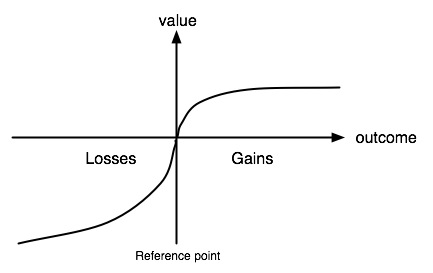 Recently I've incidentally discovered the meaning of social anxiety. Someone I know wrote she suffers from it and I looked it up. My next logical step was to categorize it to file it in my mind. Hence my social theory about coping with uncertainty. If I understand correctly, person suffering from social anxiety abstains from communicating rather than facing the other party's anticipated negative attitude. They avoid uncertainty (the other party's reaction), because they presume it to be judgmental and basically negative in nature.
Recently I've incidentally discovered the meaning of social anxiety. Someone I know wrote she suffers from it and I looked it up. My next logical step was to categorize it to file it in my mind. Hence my social theory about coping with uncertainty. If I understand correctly, person suffering from social anxiety abstains from communicating rather than facing the other party's anticipated negative attitude. They avoid uncertainty (the other party's reaction), because they presume it to be judgmental and basically negative in nature.
However, there are many types of uncertainty and many reasons to avoid them. Uncertainty avoidance is one of Hofstede's five dimensions for assessing culture. He defined uncertainty avoidance of societies as preference for explicit rules (e.g. about religion and food) and formally structured activities vs. preference for implicit or flexible rules or guidelines and informal activities. We all want to avoid uncertainty to a certain degree, which may be below or above the norm and the national or international average. Israel's uncertainty avoidance index is quite high (meaning Israelis prefer to avoid uncertainty), which somehow contradicts our general feeling of existential uncertainty. We thrive in uncertainty; we like to stretch the limits (even our borders are still not defined) and we are referred to as the start-up nation. This paradox is yet to be explained.

Daniel Kahneman and Amos Tversky define our behavior and decision making in financial uncertainty in their Nobel Prize winning prospect theory.

After mentioning all these great names, I feel awkward presenting my own little theory. The action we choose for coping with uncertain situations depends on our own uncertainty tolerance and the level of predictability of the situation (uncertainty magnitude). People suffering from social anxiety have low uncertainty tolerance, they don't cope well with uncertainty, and so they either avoid uncertainty (yellow square) or, if possible, reduce it by preparing in advance (green square). Others either just act normally (blue square), or, when faced with a low predictability situation either consider the worst possible outcome (and from there they can only be pleasantly surprised), or just face the big unknown with no expectations at all to avoid disappointment (red square).
Critiques welcome.
Critiques welcome.





No comments:
Post a Comment